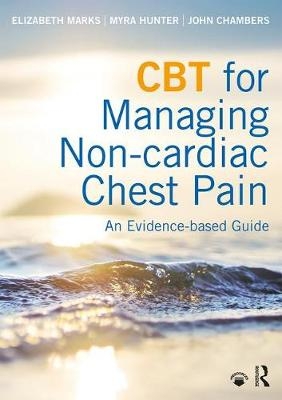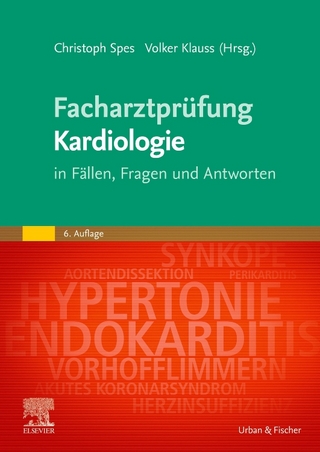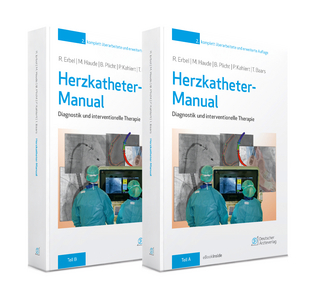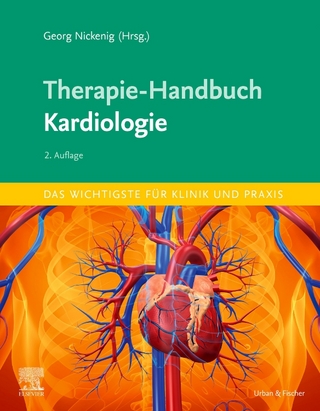
CBT for Managing Non-cardiac Chest Pain
Routledge (Verlag)
978-1-138-11901-7 (ISBN)
The authors have developed and researched a novel approach that demonstrates how physiological, cognitive, behavioural and social factors all contribute to the negative experience of chest pain. With the help of exercises and downloadable handouts for the patient, the book aims to provide the necessary information and clinical skills and approaches for clinicians to use in health care settings.
CBT for Managing Non-cardiac Chest Pain will appeal to anyone involved in the care of patients with NCCP, including nurses; general practitioners; cardiologists; acute medical physicians and psychologists.
Dr Elizabeth Marks is a chartered clinical psychologist and accredited CBT practitioner. She works at University College London Hospital and is a Lecturer in Clinical Psychology at the University of Bath. Elizabeth's particular interests lie in enabling people to better manage chronic illness and to reduce the emotional and physical consequences physical health problems, such as chest pain. She has published a number of articles on non-cardiac chest pain. Professor Myra Hunter is Emeritus Professor of clinical health psychology with King’s College London. She has specialised in the application of psychology to cardiology, oncology and women’s health and has published over 200 articles and chapters and 7 books. Her clinical research has focused on developing interventions to help people to manage persistent physical symptoms, such as chest pain. Professor John Chambers is Professor of Clinical Cardiology and consultant cardiologist at Guy’s and St Thomas’ Hospitals, London. He has a career-long interest in the interactions between physical and psychological processes in non-cardiac chest pain. John has published 8 books and over 300 papers on general medicine, heart valve disease, chest pain and cardiac imaging.
PART 1 Introduction 1: What is non-cardiac chest pain? 2: What is coronary disease and how is it excluded? 3: Historical, social and cultural perspectives on NCCP 4: Biopsychosocial approaches to pain 5: The biopsychosocial approach to NCCP 6: Cognitive Behavioural Therapy and NCCP 7: The biopsychosocial assessment for NCCP PART 2 – THE WORKBOOK How to use the workbook Session 1: Understanding chest pain and setting goals Session 2: Paced, mindful, abdominal breathing Session 3: Stress management and relaxation Session 4: Keeping active Session 5: Thinking about chest pain Session 6: Review and maintenance PART 3 – FURTHER RESOURCES Appendix 1: Invitation leaflet for the clinic Appendix 2: Assessment tools Appendix 3: Treatment handouts Glossary of terms
| Erscheinungsdatum | 23.04.2017 |
|---|---|
| Zusatzinfo | 27 Tables, black and white; 19 Line drawings, black and white; 10 Halftones, black and white; 29 Illustrations, black and white |
| Verlagsort | London |
| Sprache | englisch |
| Maße | 210 x 297 mm |
| Gewicht | 672 g |
| Themenwelt | Medizinische Fachgebiete ► Innere Medizin ► Kardiologie / Angiologie |
| Medizin / Pharmazie ► Medizinische Fachgebiete ► Psychiatrie / Psychotherapie | |
| Medizin / Pharmazie ► Medizinische Fachgebiete ► Schmerztherapie | |
| Medizin / Pharmazie ► Pflege | |
| Sozialwissenschaften ► Soziologie | |
| ISBN-10 | 1-138-11901-6 / 1138119016 |
| ISBN-13 | 978-1-138-11901-7 / 9781138119017 |
| Zustand | Neuware |
| Haben Sie eine Frage zum Produkt? |
aus dem Bereich


